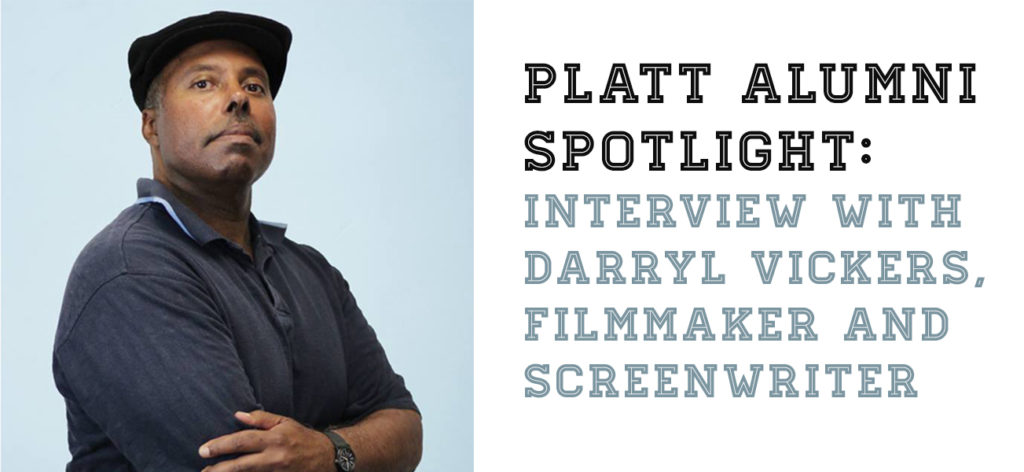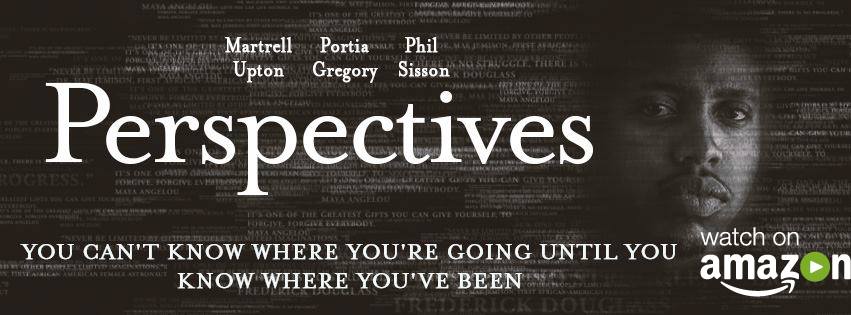
Natasha: It’s always great to hear from our alumni and check in with what they are up to in the industry after they’ve flown the nest. Can you give us a brief overview of what you’ve been up to since you graduated?
Darryl: After graduating from Platt I was the acting secretary for the media company Mental Scope Productions, before spinning off to LV55 Media LLC with my partner Ethan Leonard II. I’ve worked on numerous projects since leaving Platt including producing for music videos, shorts and feature movies, documentaries, various graphic design projects for actors and other filmmakers projects. I’ve worked on several commercials and writing for both feature and short films. In fact this is perfect timing as we just launched our Indiegogo campaign for the Private Investigations project and we’re looking for as many people as possible to help promote and share our PI campaign globally over the next 2 months.

Natasha: What is your favorite part of working in the film industry?
Darryl: Writing!… The fact that you can create all different types of characters, mix them up in different scenarios and have them run loose in your imaginative world. There’s something about bringing that imaginative world to fruition and see it come to life through the actors. I’m a huge fan of watching people’s movements, while listening to their conversations in natural settings, then incorporating my observations while writing the action and dialog in a script.
Natasha: Over the years you’ve worked on several different short films and web series, if you had to pick a favorite project, what would it be?
Darryl: Although I’ve thoroughly enjoyed all the projects I’ve been involved with so far, hands down my favorite is the Private Investigations project. The look and feel of the characters in PI are based on relatives, friends and associates I’ve known throughout my life, it’s personal. Hollywood has been called out on it’s continued lack of diversity representation in television and film. I feel the writing on Private Investigations presents the perfect vehicle to incorporate the various languages and cultural backgrounds you hear in making the entertainment landscape mirroring what you would see in real life today.

Natasha: You also collaborate with quite a few people who are well known in the industry. Who are they and how has collaborating with others helped you along the way?
Darryl: Since leaving Platt, I’ve collaborated with fellow alum Ethan Leonard II and Melvin Graham on several film projects and a documentary when we ran our own media company, Mental Scope Productions. I’ve also worked with local filmmakers Kirk “Ksmoothe” Griffin (on the feature Knock Knock Who’s There), Gerren Hall (Roses Donors and other Audits), CG Thomas (Typecasted Television and the Last Dragon Remix), Raul Urreola and Dishaun Jones (Soul Warriors Legends) and Esquire Duke and Martrell Upton (Platt College short film Iron Will, along with several others projects from their Starcore series). Over the past year or so I’ve been working on projects with director Paul Lefko (a 4-Points project), director/ dp Matthew Robinson of Silver Hawk Pictures (the Perspectives short movie) and Angie Quidim, executive producer of TME Productions on the projects Cut Jasmine, Perspectives and Parallels. I’ve learned so much by working and collaborating with others in the industry from producing, casting actors, being the on set sound recordist, production assistant, running the slate, handling on set lights etc.

Natasha: What’s been the most difficult part of scriptwriting and working on large scale film projects?
Darryl: Three things, 1) Making sure, especially on a large scale project like PI, the key people (directors, director of photography and other writers on the writing team) understand the full vision and what I’m trying to convey to the eventual audience viewer. 2) Making sure the dialog, mannerisms and nuances of the characters I’m writing for, talk and act naturally. 3) Keeping the story lines unpredictable and character arcs flowing smoothing (2 and 3 come with practice).
Natasha: How have the skills you learned at Platt helped you with your career?
Darryl: Yes, I learned the pertinent skills from Platt. While immersed in the industry I’ve learned you can’t do all the jobs and positions on a project by yourself. Forming an alliance or a team with open communication is the key to a successful project.
Natasha: What advice do you have for aspiring filmmakers or screenwriters?
Darryl: Don’t rush your project, stay in preproduction for as long as necessary, you’ll have less headaches during production and post production. Surround yourself with people who know more than yourself and find out what other skill sets they possess, you’ll really be surprised. Stay humble and you’ll always be in demand. And remember, the film industry is very collaborative.